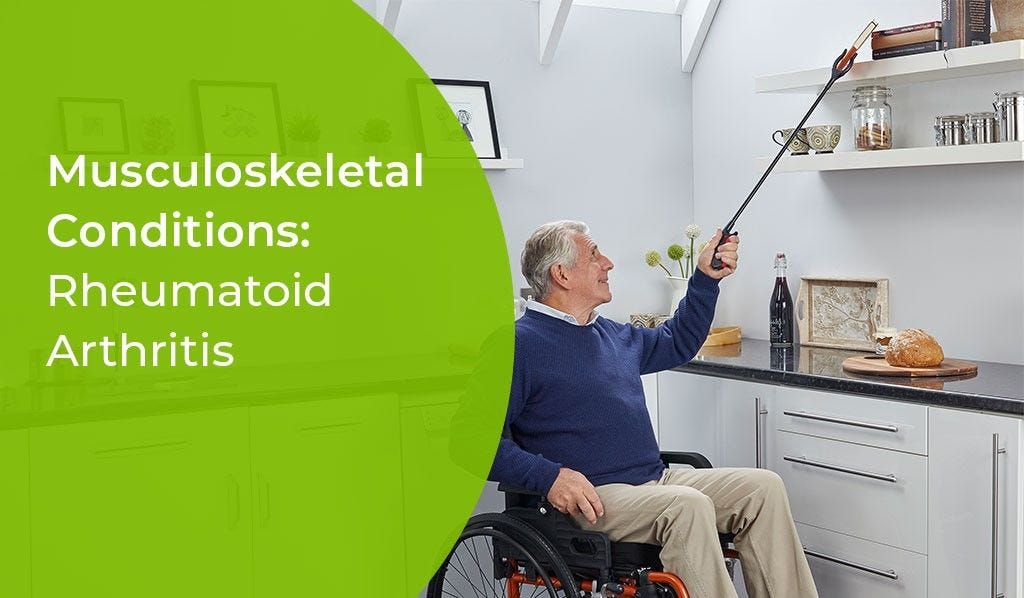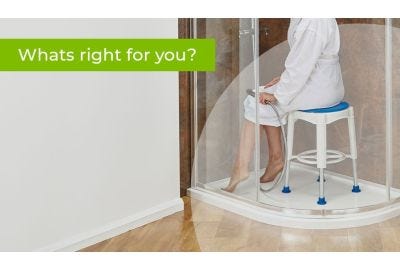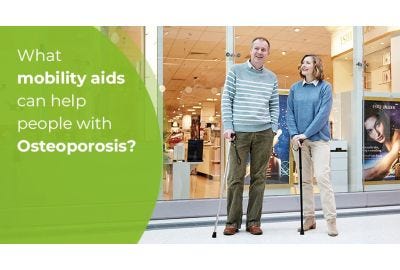Mobility aids to help people with Musculoskeletal Conditions: Rheumatoid Arthritis
Rheumatoid arthritis is a long-term condition that causes pain, swelling and stiffness in the joints. It is particularly common in the hands, feet and wrists, causing pain and discomfort walking and making it difficult to hold and grip objects.
Typically, those living with rheumatoid arthritis experience periods when symptoms suddenly become worse. Known as “flare ups,” these can sometimes be associated with stress, over-exertion or even changes in the weather. In other cases, they can occur without any obvious rhyme or reason.
Rheumatoid arthritis is the most common inflammatory arthritis, affecting about one percent of the UK population. It is most prevalent in women aged 50 and above, but can affect both sexes at any age.
What Exactly is Rheumatoid Arthritis?
Most of us know about the symptoms of rheumatoid arthritis, either through first-hand experience or that of a friend or loved one. But what actually causes that pain, swelling and stiffness?
Rheumatoid arthritis is an autoimmune disease. This means the immune system, which usually fights infection, attacks healthy cells by mistake. Over time, this causes damage to cartilage and the surrounding joints and bones, resulting in that familiar inflammation and stiffness.
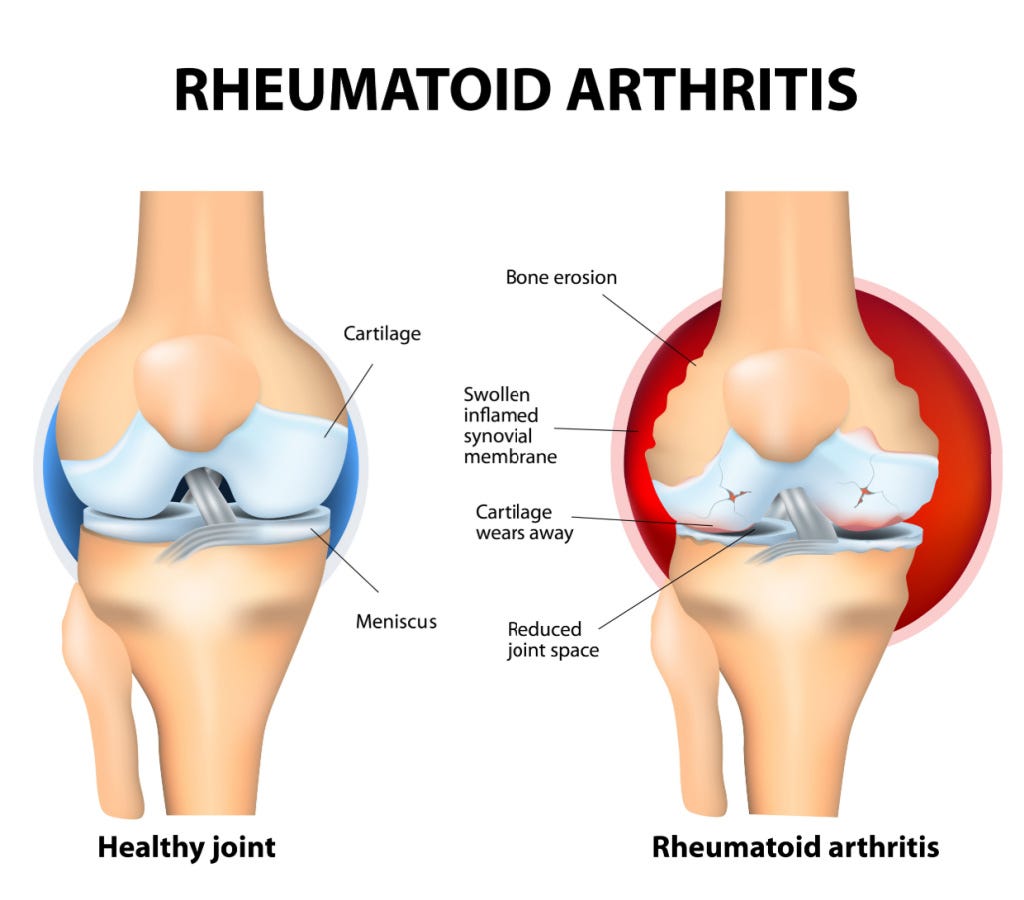
Research into the condition is still ongoing in attempts to better understand what triggers it. There are still more questions than answers here, but there are certain factors that put you at greater risk. For example, women are more likely to be affected than men, and smokers are at higher risk. There also appears to be a genetic element in play, so if you have a family history of rheumatoid arthritis, you are more likely to get it yourself.
Mobility aids Make Life with Rheumatoid Arthritis Easier and More Comfortable
Mobility aids can be hugely beneficial for people with rheumatoid arthritis. As we mentioned, it most commonly affects the hands and feet, so can have a significant impact on mobility. The following are among the mobility aids that can help individuals with rheumatoid arthritis to lead an independent, self-sufficient life while minimizing the pain and discomfort of the condition.
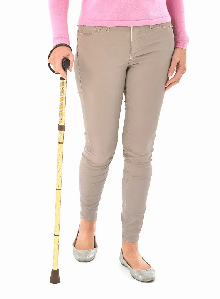 Walking sticks & Canes – canes provide that extra stability and support for those who just need a little extra help, and walking sticks offer extra features such as special grips for arthritic hands or curved handles for extra support.
Walking sticks & Canes – canes provide that extra stability and support for those who just need a little extra help, and walking sticks offer extra features such as special grips for arthritic hands or curved handles for extra support.
Crutches – typically, these are used as a temporary during recovery from a surgical procedure, but the extra weight-bearing capability means they can be useful to have around in case of a severe flare up.
Manual wheelchairs – when rheumatoid arthritis makes it difficult and painful to walk more than a few steps, a wheelchair is essential in order to get out and about. Manual wheelchairs can be wheeled by hand if your grip and upper body strength permit, or can pushed by an attendant. There is a huge range of wheelchairs to serve every circumstance, including lightweight transit wheelchairs, which are ideal for stowing in a car, train or plane, and bariatric chairs for larger and heavier users.
Electric wheelchairs – powered chairs also come in different types and sizes. They provide users with greater independence and are highly manoeuvrable.
Electric scooters – for those who want to travel further in comfort and with absolute independence, an electric scooter checks all the boxes. Again, there is a wide choice to suit every need and budget.
Other Useful Aids for People Living with Rheumatoid Arthritis
Anyone living with rheumatoid arthritis will know that getting around is only part of the issue. Routine household tasks that you used to do without thinking suddenly become a test of endurance and ingenuity. The following aids can make life a whole lot easier, safer and more comfortable.
Orthotic insoles – these are inserts that you can place inside your shoes to provide additional arch support and reduce foot discomfort.
Reacher grabbers – reach and grasp objects without having to stretch or bend.
 Adaptive kitchen tools – taking the lids off jars or operating a conventional tin opener can be a real problem when you have rheumatoid arthritis, while pouring boiling water from a kettle can be downright dangerous. These are just a few examples of the tasks that can be performed safely and easily with the help of adaptive kitchen tools.
Adaptive kitchen tools – taking the lids off jars or operating a conventional tin opener can be a real problem when you have rheumatoid arthritis, while pouring boiling water from a kettle can be downright dangerous. These are just a few examples of the tasks that can be performed safely and easily with the help of adaptive kitchen tools.
Elevated toilet seats – nobody wants to ask for help in sitting down and standing up from the toilet if it can be avoided. An elevated seat means less strain on the joints and less likelihood of an accident.
Shower chairs or stools – these allow individuals to sit while bathing, reducing the risk of slips and making it easier to take care of personal hygiene without needing to ask for help.
Grab bars – rheumatoid arthritis can make you more prone to losing your footing and less able to recover if you do so. A strategically positioned grab bar can make all the difference, both in the bathroom and elsewhere around the house.
Bed rails – none of us are at our most alert first thing in the morning, and this can be when stiffness from rheumatoid arthritis is at its worst. A bed rail provides welcome assistance and extra stability to rise and shine safely.
Heating pads and cold packs – these can help to alleviate the joint pain and stiffness caused by rheumatoid arthritis.
Compression Gloves and Sleeves – benefit from extra support where it is needed most. These can also help reduce swelling in the hands.
Adaptive clothing – garments with velcro or magnetic closures make it easier to get dressed and undressed without assistance.
Orthopaedic shoes – these have enhanced support and cushioning to make walking safer and less painful.
Help is Available
Rheumatoid arthritis is a condition that affects more than half a million people in the UK. However, no two cases are identical in terms of symptoms and severity. If you have symptoms indicative of rheumatoid arthritis, it is important to speak to your GP or physical therapist. Different treatment options are available to alleviate the symptoms and manage the condition.
Mobility aids can also be beneficial to help minimize pain and maintain mobility and independence, when used in conjunction with the medication and exercise programmes recommended by your healthcare professional.
Please call our dedicated sales team on 0333 015 5000 if you need any advice on mobility products. For independent advice and support about living with Rheumatoid arthritis, we recommend the National Rheumatoid Arthritis Society, a UK patient led charity focussing specifically on Rheumatoid arthritis.
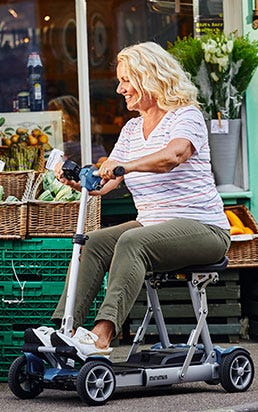

 Price Match Promise
Price Match Promise
 Next day delivery, 7 days a week
Next day delivery, 7 days a week
 Nationwide Showrooms
Nationwide Showrooms
 Rated Excellent
Rated Excellent
